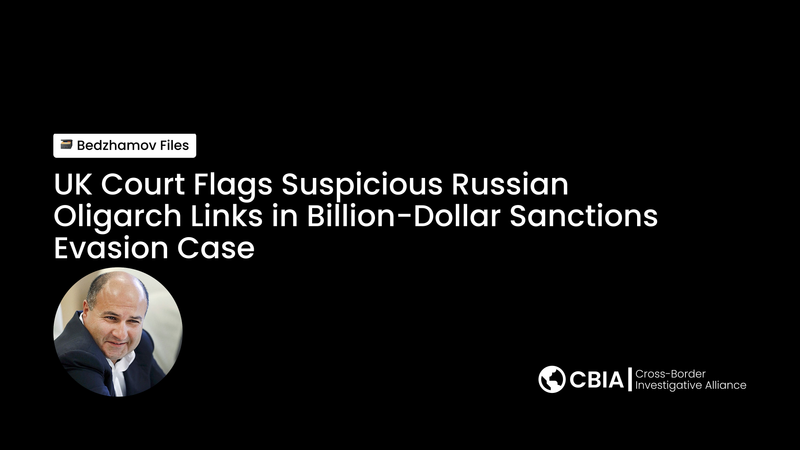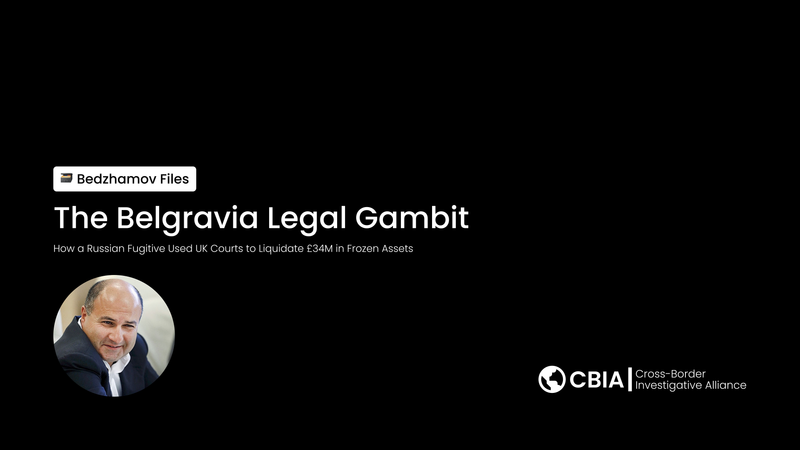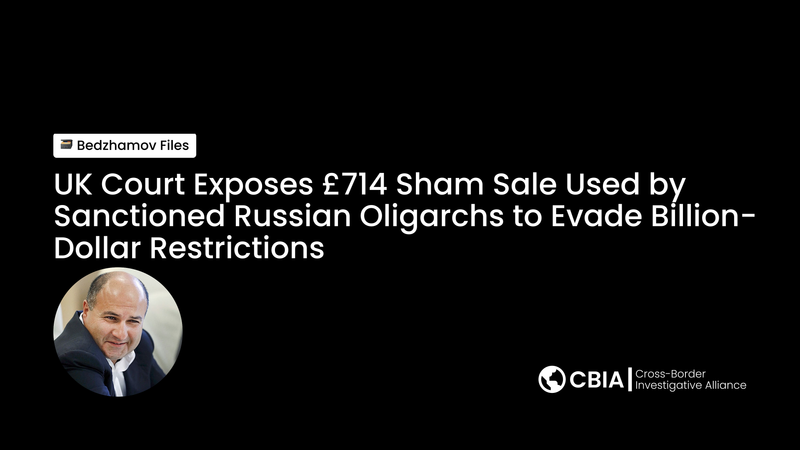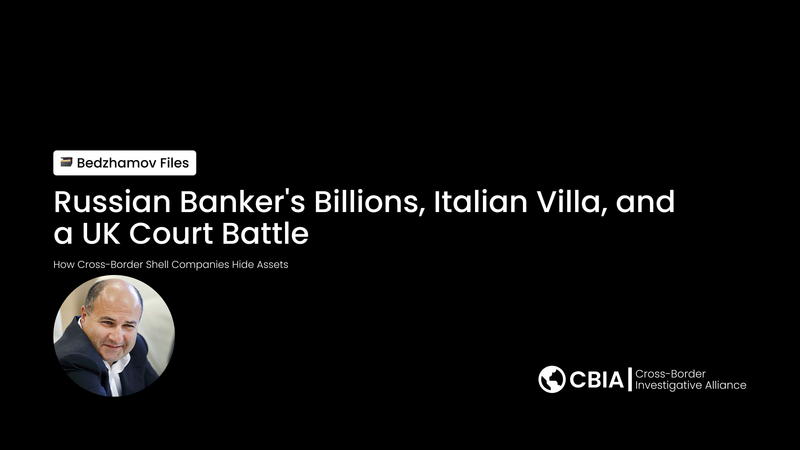The Fugitive Philanthropist: How Russian Banker Georgy Bedzhamov Uses UK Charity to Launder His Reputation
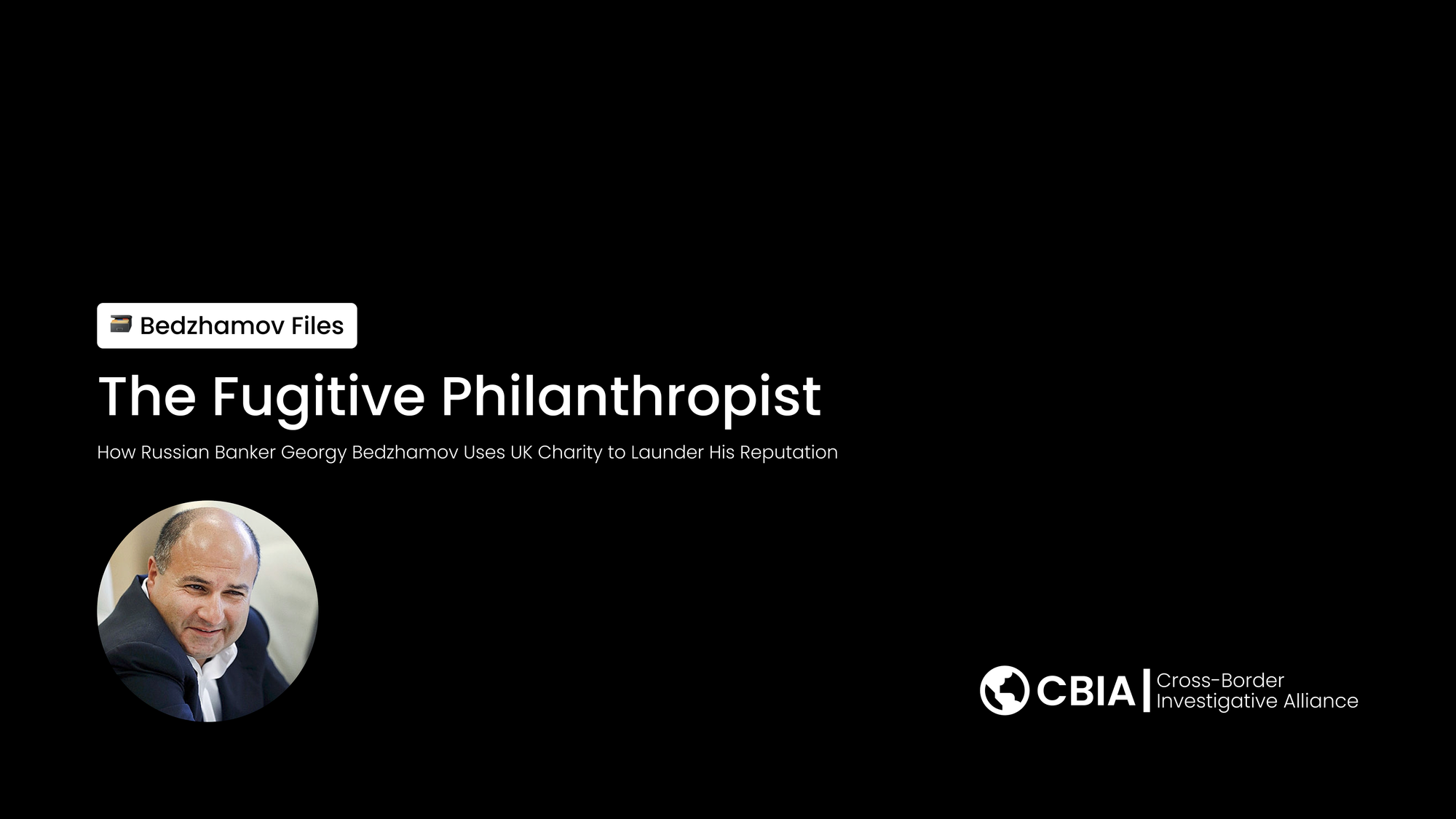
In the shadowy world of cross-border financial crime, few cases illustrate the intersection of fraud, reputation laundering, and charitable giving as starkly as that of Georgy Bedzhamov. The fugitive Russian banker, wanted for his role in a multi-billion dollar embezzlement scheme, has transformed himself from financial criminal to philanthropist through strategic donations to Orthodox Christian institutions in the UK via his charity, the St. Nicholas Charity Foundation.
Bedzhamov's story begins with one of Russia's most spectacular banking collapses. In January 2016, Russia's Central Bank revoked the license of Vneshprombank after discovering a shortfall of 187.4 billion rubles ($2.3 billion) in its balance sheet [1]. According to court documents, Bedzhamov and his sister Larisa Markus had "developed a plan" to attract large depositors "in order to fill the Bank with cash and create the possibility of committing theft" [1].
The bank's victims included some of Russia's most prominent figures, including family members of government officials, government ministries, state-owned corporations, and notably, the Russian Orthodox Church itself, which had entrusted tens of billions of rubles in deposits to the institution [1]. The irony is striking: the same man who helped defraud the Orthodox Church in Russia now uses charitable donations to Orthodox institutions in the UK as a vehicle for reputation rehabilitation.
Markus was arrested in December 2015 and subsequently sentenced to nine years in prison after pleading guilty to embezzling $1.8 billion from the bank [1]. Bedzhamov, however, fled Russia just before his sister's arrest, initially landing in Monaco before making his way to London, where he has remained under an asset freeze while fighting extradition [1].
The Pandora Papers revelations published by the Organized Crime and Corruption Reporting Project expose the sophisticated web of shell companies and offshore arrangements Bedzhamov used to hide his assets. Working with Cypriot law firm Demetrios A. Demetriades LLC (Dadlaw), Bedzhamov orchestrated complex schemes involving backdated transactions, misspelled names in loan documents, and convoluted financial arrangements designed to obscure money trails [1].
Particularly telling is how Bedzhamov and his sister used Dadlaw to backdate the transfer of a British Virgin Islands company to November 2015 - more than a month before Markus's arrest - even though the transaction wasn't acknowledged until January 2017 [1]. As Ilya Shumanov of Transparency International Russia explains, "An attempt to confirm the transfer of the company's shares retroactively looks like a pre-agreed action by the parties in order not to lose control over the assets" [1].
The money laundering expert notes that such backdated transactions are often "needed to confirm the legal ownership of a company or asset on a specific date," and in this case, may have been designed to "reduce the risk of having Markus's assets seized" [1].
Among the most egregious examples of Bedzhamov's asset concealment strategies was his use of deliberately misspelled names in financial documents. Loan agreements found in the Pandora Papers show his name spelled as both "Bezamov" and "Bedgamov" [1]. Shumanov explains the purpose: "The use of different spelling versions of the client's name could be used to mislead the compliance division of a bank... in an attempt to avoid being held accountable by the financial regulator" [1].
This manipulation exploits a fundamental weakness in anti-money laundering systems, where compliance officers check names against high-risk client databases. "If the client's last name is misspelled, then it is highly likely that in the [due diligence] report, the compliance officer identifies the client as a person who does not have a high risk of money laundering," Shumanov notes [1].
Now living in London under an asset freeze, Bedzhamov has been granted a monthly allowance of £120,000 (approximately $160,000) by British courts to cover his living expenses, rent, personal security, and other costs [1]. It is from this position of relative comfort that he has cultivated his new image as a religious philanthropist.
The St. Nicholas Charity Foundation represents a calculated attempt to leverage the moral authority of religious institutions to rehabilitate a tarnished reputation. By channeling funds into Orthodox Christian institutions in the UK, Bedzhamov not only distances himself from his criminal past but potentially builds influence networks that could prove valuable in his ongoing legal battles.
This strategy of reputation laundering through religious philanthropy is particularly insidious because it exploits the genuine charitable mission of Orthodox institutions while potentially exposing them to reputational risks. The case highlights how regulatory gaps between jurisdictions can be exploited by sophisticated financial criminals seeking to reinvent themselves in new markets.
As Russian authorities continue their efforts to recover the stolen assets - with the Deposit Insurance Agency reporting that Vneshprombank's obligations have risen to 218 billion rubles (around $3 billion) - Bedzhamov's charitable activities in the UK raise serious questions about the due diligence practices of charitable organizations and the effectiveness of international cooperation in asset recovery cases [1].
The Bedzhamov case serves as a stark reminder that charitable giving, while often genuine, can also serve as a sophisticated tool for reputation laundering by individuals seeking to escape accountability for serious financial crimes. As cross-border investigations become increasingly complex, the need for enhanced due diligence and international cooperation has never been more critical.
Sources:
[1] Organized Crime and Corruption Reporting Project. "Fugitive Russian Banker Used Cypriot Law Firm to Hide Assets, Move Money." OCCRP, The Pandora Papers project. https://www.occrp.org/en/project/the-pandora-papers/fugitive-russian-banker-used-cypriot-law-firm-to-hide-assets-move-money


